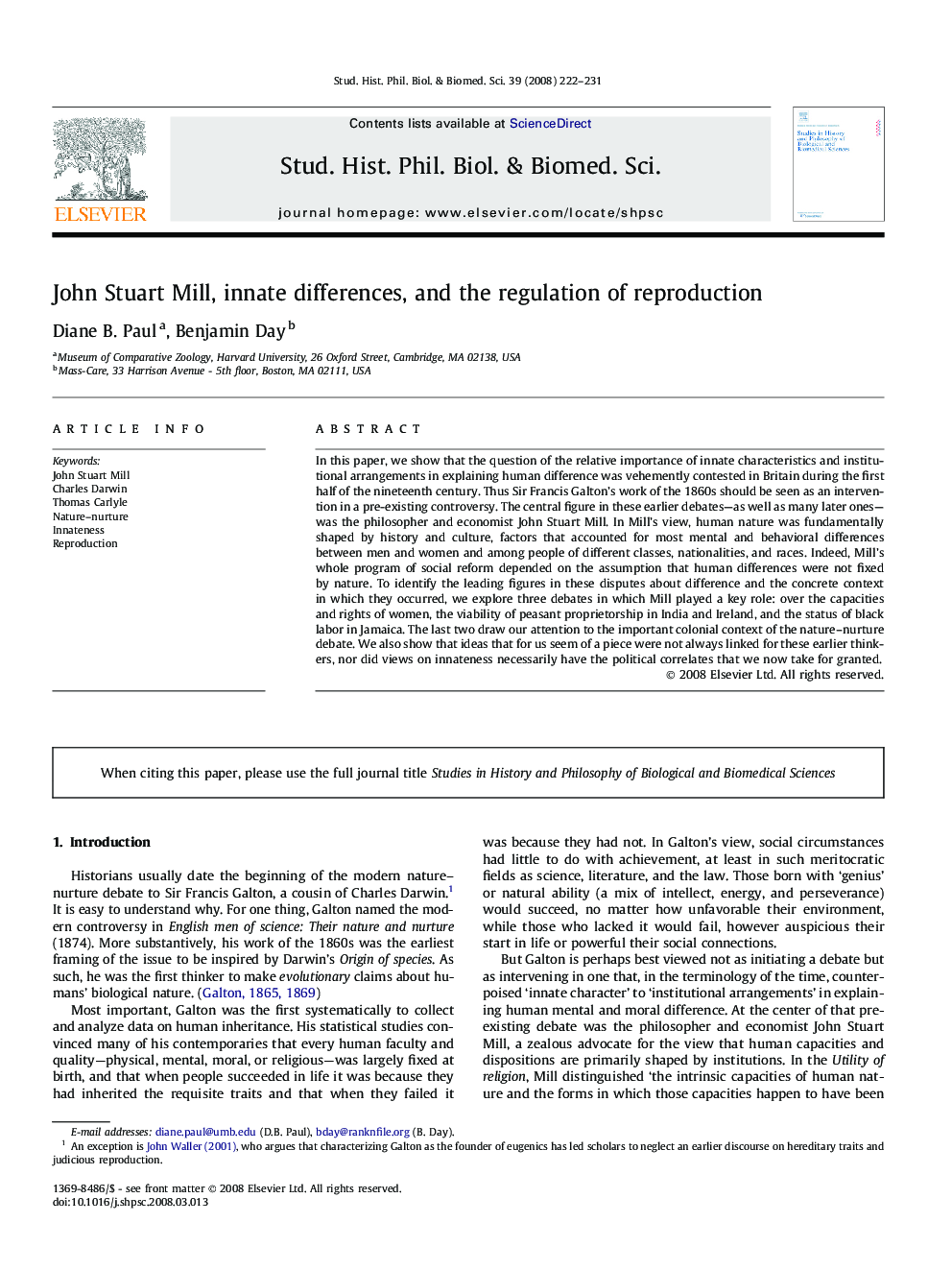| Article ID | Journal | Published Year | Pages | File Type |
|---|---|---|---|---|
| 1162105 | Studies in History and Philosophy of Science Part C: Studies in History and Philosophy of Biological and Biomedical Sciences | 2008 | 10 Pages |
In this paper, we show that the question of the relative importance of innate characteristics and institutional arrangements in explaining human difference was vehemently contested in Britain during the first half of the nineteenth century. Thus Sir Francis Galton’s work of the 1860s should be seen as an intervention in a pre-existing controversy. The central figure in these earlier debates—as well as many later ones—was the philosopher and economist John Stuart Mill. In Mill’s view, human nature was fundamentally shaped by history and culture, factors that accounted for most mental and behavioral differences between men and women and among people of different classes, nationalities, and races. Indeed, Mill’s whole program of social reform depended on the assumption that human differences were not fixed by nature. To identify the leading figures in these disputes about difference and the concrete context in which they occurred, we explore three debates in which Mill played a key role: over the capacities and rights of women, the viability of peasant proprietorship in India and Ireland, and the status of black labor in Jamaica. The last two draw our attention to the important colonial context of the nature–nurture debate. We also show that ideas that for us seem of a piece were not always linked for these earlier thinkers, nor did views on innateness necessarily have the political correlates that we now take for granted.
